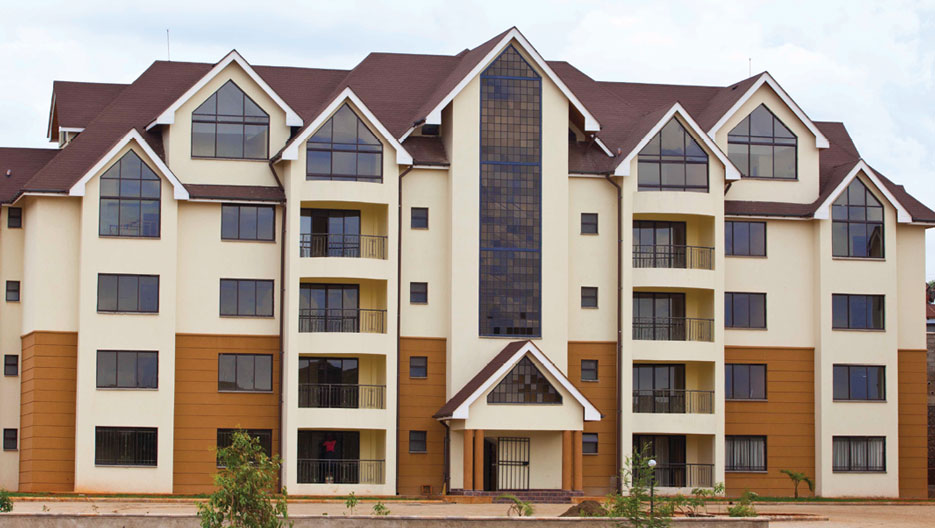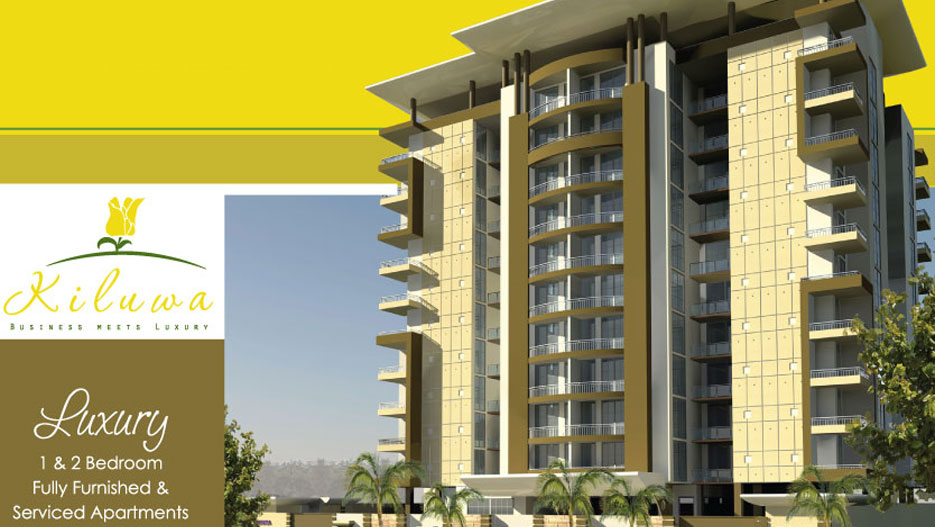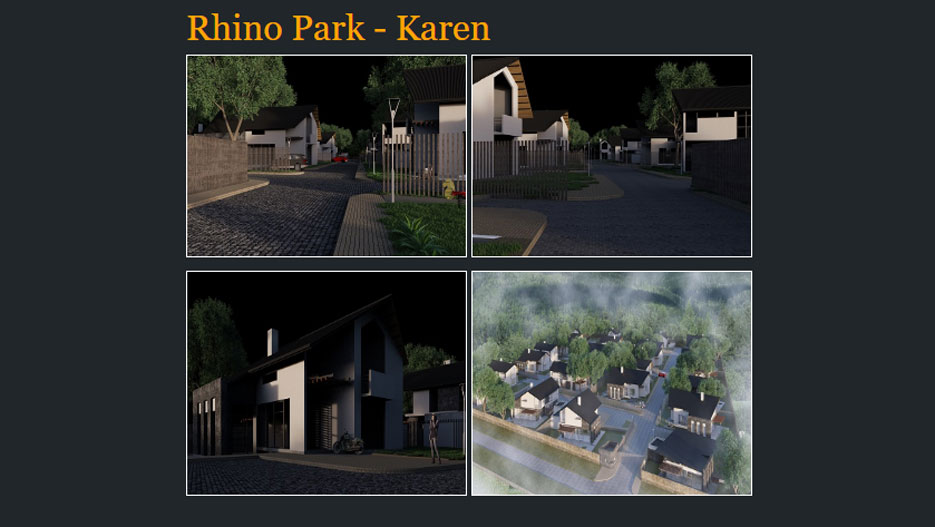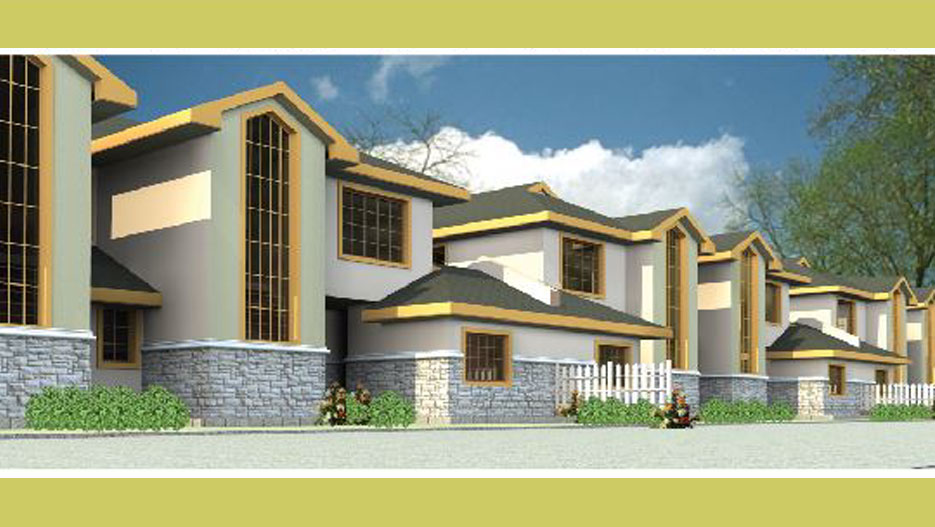Real Estate Sector in Kenya: Homescope Properties is Looking for investors
Mohamed Ahmed gives an overview of real estate company Homescope Properties, mentioning some interesting projects currently under development. He also talks about opportunities for potential investors in this area.
Interview with Mohamed Ahmed, Managing Director of Homescope Properties

What are the main projects that you are working on at the moment?
We have a great project called the Kiluwa project. Kiluwa is a Swahili name for a very nice flower; it is used in weddings because it has a very nice smell. So we gave it that name because it is one of our signature projects. This project is slightly different from other projects because it is for hotel apartments. We noticed that so many business people come and stay in hotels and when they have research or an audit to do locally here, they want to spend a month here and so it is very inconvenient to stay with their families in hotels. We came up with apartments; we don’t own them, we are going to sell to individuals who will then lease to corporates like Barclays, Safaricom and so on. These are convenient apartments for these corporates because when they receive their directors they get to take them to these apartments which will have similar facilities to five star hotels. They have heated pools, saunas, spas, high speed elevators, restaurants and so on. We have 84 apartments at the moment and we have sold about sixty of them. The project is about 80% complete. By December of next year, we will be ready to hand over the projects to the buyers.
We also have different projects for different markets because we notice that we have different classes of people, some people in middle income, others in the high end and they prefer different areas of Nairobi. Also they have a certain type of budget. We have apartments in South C which are for the middle class and are going for about 20 million Kenyan Shillings and are 2 bedroom apartments. We also have villas for directors and managers, people in the corporate world who want to have a standalone house within a gated community with good security and water. Those are going for 40 to 45 million Kenyan Shillings. We also have budget maisonettes in a place called Syokimau, again the name for that is Bombax which is the name of a plant with flowers. There are 72 of these 4 bedroom maisonettes and they are going for only 12 million. The location is next to the airport so we are targeting pilots and people who work in the airport. We also have the Shaam apartments. They are high end family apartments going for 25 million Kenyan Shillings. They are big and spacious for families, they have 3 bedrooms, with servants’ quarters, and we have also put in common facilities like a swimming pool for all residents to enjoy. We also have the Henna apartments in South C. Henna is what Arabs use for decorating their hands. Because our joint venture partner, the land owner, is from that culture we called it Henna: small like the palm of your hand but beautiful. They are 2 bedroom apartments in South C.

How do you perceive the real estate market here in Kenya? What are the trends and who are the players?
First of all, in Kenya we have a demand of about 150,000 units per annum of housing. There is a huge shortage of houses. What I and other developers can supply is only 30,000. So you can see the gap is huge and the gap is mainly in low cost housing which our company doesn’t do because we don’t have the speciality of doing cheap houses, we prefer doing high end houses with good finishes. The deficit is very big. This demand has made the acquisition of land continue to go up by about 20% monthly. The cost of construction and the cost of houses are always going up because the demand is tripling. Furthermore, the lifestyle of people with the internet and other things has changed the design of houses. You find that people want to work from home so you have to provide internet and a small office because flexitime is becoming the way to go in most of the corporates. Also because of the traffic jams, proximity of the central business district has made some of the house prices really go up. At the same time, people who can afford to stay out of town have also made satellite towns come up, so we have projects such as Rhino Park, which is in the periphery of Karen. There are some strict regulations on zoning and in this area of Karen you can’t put a house for more than half an acre. The budget for the villas is for about one million dollars. Most people cannot afford those kinds of houses, so instead of half an acre you need houses on a quarter acre. The only way to do that is to go slightly out of town in a place where there is good infrastructure and you can make it to work and back home. Also, Kenyans are naturally attached to properties and so you find that land is scarce because there are huge scathes of land but no one is selling and that is pushing the prices up.
We are looking for equity investors, not in the company but on the projects. For example, an investor can come and pick a project that we have, look at the costs and put in some money and get a return out of it.
Another thing to mention is that development is very capital intensive because it requires a huge capital before you can put up a show house or before the project can even start. There is a lot of money required. If you have about 10 projects going on at one time, the strain in completing those projects on time and delivering on quality is huge. Our company, in terms of capacities, both technical and equipment and so on, is strong. So we are ok with capacity, ok with demand and ok with sales but the cash inflow in terms of investment, the capital, is where everybody is straining. It is not only Homescope; it is also all of the other competitors. If you look at the interest rates in Kenya, they are among the highest in the world. We are talking about 18% to 20% sometimes to 22%. This has been driven by the T bill of the government and also the lack of foreign direct investment. The biggest challenge for most developers is the access to funds from banks. It is a major handicap because you definitely end up passing the cost of funds to the buyers. If you were able to sell a house at 10 million, you will end up selling it at 11 or 12 million to cover your cost of funds because the cost of funds that we are accessing is very expensive.
We also have an issue regarding competition. Kenyans are getting more and more particular with their selection and choice. That is where we have a competitive edge over other developers because they want good finishes, intelligent houses with all of the facilities, good service, hot water, solar power, security, etc. I think gated environments and communities are becoming more and more popular because you share the costs of security. No one wants to stay in a compound on their own like they did in the past because for one thing it is expensive and also there is an issue of security.
As Homescope Properties we also have something that we have perfected and that is our joint venture structure with land owners. Our joint venture structure is completely different from what our competitors do. We do not form special purpose vehicles with the landowners because in special purpose vehicles with landowners you find you have to share both profits and losses in case the project does not go well. Our structure is that once we have done the shares, we split the units, the land owner takes a certain number of units and we take a certain number of units. That minimises conflict with landowners. Because this kind of joint venture structure has become popular, we have received so many inquiries for going into joint ventures. That is why we have 10 to 15 projects at a time if you include the ones for Hajar Services Ltd.

Can you explain the difference a little more?
We find land and it is valued, it becomes the owner´s share. Then we value the cost of development and that is our share. Our competitors take the two shares and form a company. They say to the owners that they own 30% and the developers own 70%. Then the company does the development and the owners have to sell everything. Once you have sold, when you are splitting the profits into 30 and 70, two things happen: first, the price of the neighbouring plots has gone up so the landowner feels cheated because what you give him is less than the value of the land. He feels he shouldn’t have gone into the joint venture because he has lost on appreciation. Secondly, in the case of cost overruns or that the project is not making good money because you have had to sell at a lower price, when you give him his share, again he feels cheated because he is getting less than what the value of the land is. In our case it is very different. When we do the design, if there are ten units and we are giving you 30%, we will tell you to take three units and we will sell our seven units. When the properties are going up, let’s say I have sold at 70 million, you don’t have to sell, you are under no pressure to sell, you can rent the house and get rental income, or you can wait until the houses have appreciated and if cement goes up and there is a loss, you are not affected because my agreement with you is very simple; these are the plans, this is the period of completion and these are the number of units. I have to build per these specifications and I have to hand over the units to you. There is no underselling. That is the major difference; you won’t lose on appreciation as the landowner. If there are any cost overruns, you don’t need to worry and if there is a delay on the project you are covered because if I delay the project, there is a penalty on my part for not handing over the units to you.
It makes it easier to assess the risk.
Also for the investors who want to come, it means they don’t have to deal with the third party who is the landowner because the landowner has a certain number of units and then he is out, whereas the investor invests on our units, the units we are selling. In the other model there is the problem that the special purpose vehicle that was formed for the development means that the landowner is also a shareholder. For a foreign investor coming in it means they have to deal with the landowner and the developer. There are so many things that are disadvantages in the model that the competitors use. This year alone we had to turn away about 5 opportunities that came to us for lack of investors. The opportunities are there but we are overstretched with ten to fifteen projects. We cannot expand and deliver on quality and time with limited capital and resources. We have to wait until we complete Kiluwa and Wood Avenue before we can move on to another one. Most of the people that we have turned away are willing to wait because of our reputation and because of what they have heard from other previous joint venture partners with us who are very happy with what we have done for them. Someone who had empty land is now earning income on rentals. Now the land is working for him because he has properties there that he has rented out and is now receiving up to one or two million a month. He is taking care of his family. If he were doing it the other way where he sold everything, most probably it would be like he just sold his land with no value addition in the partnership.
What kind of investor are you looking for?
We are looking for equity investors, not in the company but on the projects. For example, an investor can come and pick a project that we have, look at the costs and put in some money and get a return out of it. Those are the investors that we are looking for. We don’t want someone to come and invest in the company itself because the company owns a lot of assets and so they would have some control over the way we run the company. We would like them to work on a project basis where they can come and assess the project, look at the profits and get some profits from the projects. If they are Shariah compliant then that is better for us. Shariah compliant is very simple, if for example we have a project costing 400 million, and you put in 100 million that means you are entitled to 25% of the profits. If the profit is very good, you get more than 20% to 30%. In the case of Taka, for their investment of 100 million, we paid them 140 million because the sales and the profits were very good. We are also open to other forms of investment. An investor can just ask for a return on his capital, annually or maybe on completion of the project. Those are the things we are looking for. Another way for people to invest is to buy off plan and then we can sell for them on completion at a higher price. Off plan prices are very low for investors as long as they are able to pay up front. For example a unit that we are selling at 26 million, we are able to offer that unit at 18 million. That is 8 million premium that the investor will get. The catch is that you pay the 18 million up front and you wait for completion for me to give you back the 26 million. I give you back your capital and your profits. If we get ten investors or so for every project, or someone who can take on ten units, that is good for us, we don’t need to invite many investors. We just want a few partners for every project.
There are three options for investors. Either you buy offplan and you get a return on completion or you come in as an equity investor per project or you can do receivable financing. Receivable financing is where we have a number of units that we have sold and the buyers have given us 20%, and they will give us the remaining 80% on completion. You find that in a project where we have sold in this way, our collections on completion are maybe 1.3 billion. We can’t access that until we complete and maybe we need 200 million to complete so if someone comes and looks at the sale agreements and sees that these are genuine buyers who have bought and will pay Homescope, they give us a certain amount of money to complete the project. It is like financing debts. We have a lot of amount that is outside from buyers that we cannot collect, we have to wait to complete the project to start demanding payment. For villas, it is very easy because most of the villa buyers are cash buyers; they give you between 40% and 60% so the outstanding balances are very small. However for apartments they tend to be mortgage takers who don’t have the money, they pay 20% and then they go and look for a loan. Therefore we won’t get that amount from the bank until we complete. We have huge amounts that we can’t collect because the projects are moving slowly and we need investors to come in.

What are the projections for next year in terms of the real estate market? There are going to be elections so do you think things will slow down a bit?
There is the tendency that 6 months before elections there is a trend for wait and see from buyers but not from investors. All investors know that near elections is when you get very good deals because you can buy at very good prices. Immediately after successful elections, prices shoot up because people get confidence and they know that there will be another 5 years of peace. Everybody increases their prices in those moments. For smart investors, the idea is to buy and keep and not to sell in that year. For example, I have some units that I don’t want to sell; I want to keep them until after the elections because I know the elections will be successful. Most people who get scared are people who are not locals; they are mostly foreigners and foreign investors because they don’t have a feel for what is happening in Kenya. In Kenya, the investments even for foreigners and other countries are huge so there is so much at stake for them, they cannot let the country go to the dogs and we have confidence that after what has happened in the past, it was a lesson learnt and no one wants a repeat of what happened in 2007. Looking at the GDP growth of 7% annually, I think there is a huge potential here. That is why no one is slowing down. The elections are next year but no investors or developers are slowing down. New projects are being approved all the time. I don’t think the elections are an issue for us.